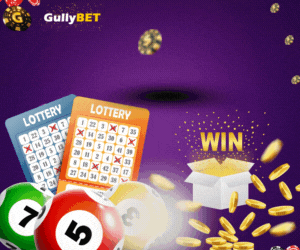The rules and mechanics of each game determine how players’ chances of victory play out. Mastering the mechanics used in spinning wheels, drawing cards, and rolling dice improves smart choices, which results in a better game experience.
The Basics of Probability and Risk
The core element of any game relies on probability, which defines the mathematical potential for particular results. Games seem basic, yet every move depends on secret probabilities that dictate whether you will win.
Roulette odds require thorough comprehension from all players who want to make strategic decisions while controlling their risk exposure during gameplay. The probability to win a single number bet on European roulette stands at 1 in 37 while the payout reaches 35 to 1. When you place bets on red or black, your chances balance out against the dealer, but you will receive less money in return.
Players can improve their betting strategy by understanding various odds in roulette. Each game round becomes unique because of their odds-based mechanics, regardless of their wheel or card nature.
House Edge and Its Role
Each game depends heavily on the house edge because this mathematical advantage guarantees operators collect profits over the long term. The game mechanics determine how much players can win and their chances of winning, directly affecting the house edge.
When a zero pocket appears, the house edge increases in wheel games because it creates a slight advantage for the casino. Small changes to rules guarantee that the platform remains profitable throughout extended periods.
Games with reduced house edges enable players to increase their gameplay duration and potential profit potential. Understanding mechanics that determine house edge helps players decide which games provide better monetary value and which areas require their strategic focus.
Skill vs. Chance: How Mechanics Define the Balance
Gambling activities do not always depend on luck since skill-based games transform probability dynamics during gameplay. Players who make decisions through game mechanics as well as fold and wager selection receive strategic control over the gameplay experience.
Games such as numbered wheel spinning, where chance plays the dominant role, do not allow your decisions to affect the final result. However, in strategy-based games, the mechanics reward experience and smart decision-making. Game players who master game rule knowledge adapt strategies to enhance their play results with time.
Long-term game participation increases satisfaction for players who choose skill-based levels in their gaming experience. Players who want to identify skill-based games versus ones controlled by chance must grasp game mechanics to determine where strategy is significant.
Payout Structures and Their Impact
Payout structures are another key aspect of game mechanics that influences your winning potential. Here’s how different payout designs can shape your experience:
- Fixed Payouts: Standardized rewards that don’t change, offering predictability.
- Progressive Payouts: Jackpots that grow over time, increasing excitement but lowering overall win frequency.
- Bonus Rounds: Special in-game events that provide additional winning chances.
- Multipliers: Features that boost your winnings based on specific game conditions.
The different payout types determine both frequency and payout amounts in a game. A gaming system which integrates multiple payout mechanics provides players with extended playtime since they can access different ways to win. An analysis of payout structure allows players to establish realistic goals and identify their most promising winning possibilities.
Conclusion
The game mechanics determine your likelihood of winning because they determine both move probabilities and payment terms. Understanding roulette odds with skills in game mechanics helps enhance gaming strategy while also improving overall enjoyment.
Your gaming success depends on understanding the house edge game type and payout design. This enables you to make strategic choices based on your win, fun, or strategy goals. Knowledge functions as power and brings about enhanced satisfaction in gaming activities.

Leave a Reply